Afghanistan six months on: Children on the edge of life
Save the Children are releasing a powerful series of photographs to highlight the human tragedy unfolding in the country six months since the dramatic transition of power
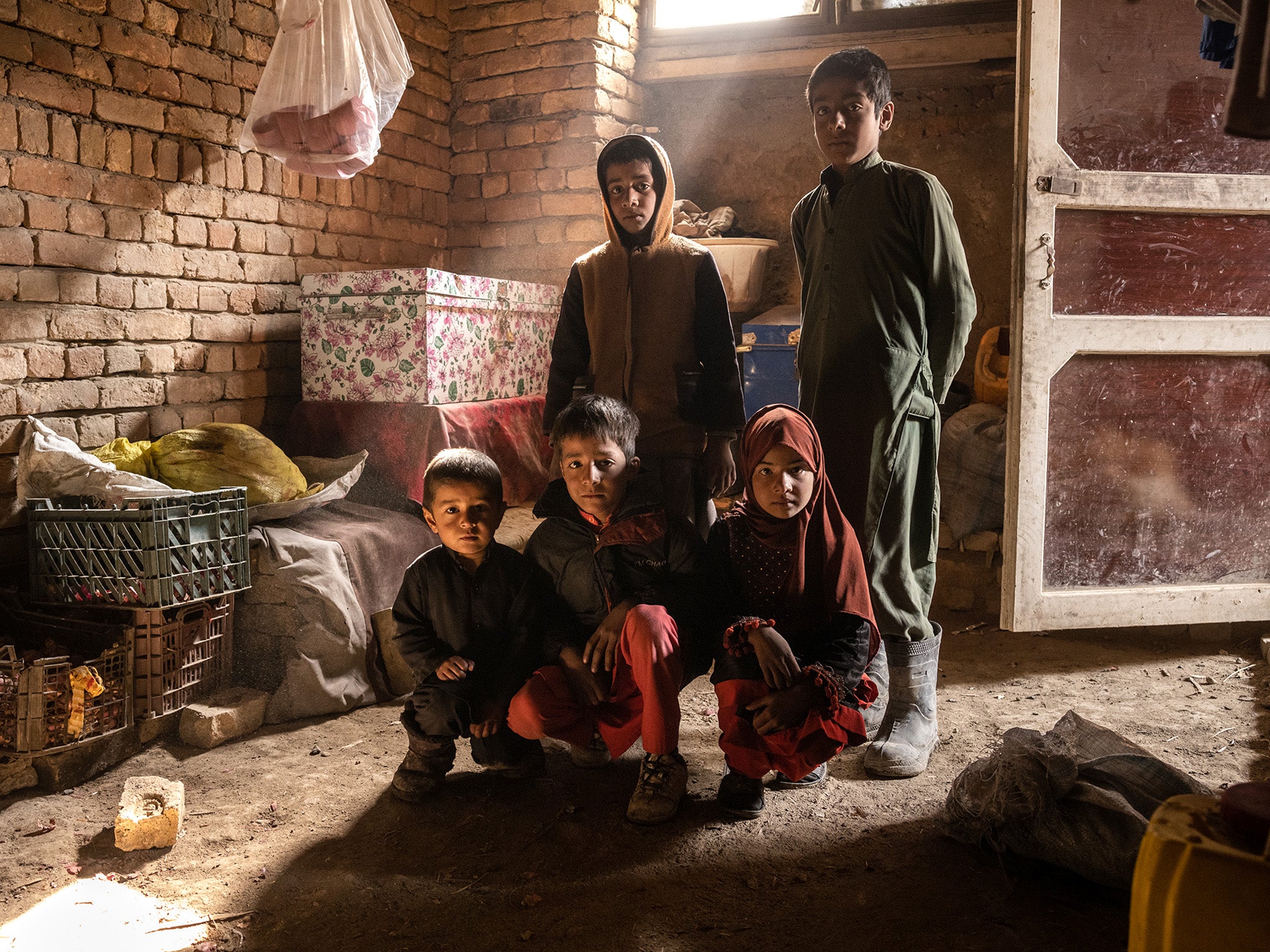
Your support helps us to tell the story
From reproductive rights to climate change to Big Tech, The Independent is on the ground when the story is developing. Whether it's investigating the financials of Elon Musk's pro-Trump PAC or producing our latest documentary, 'The A Word', which shines a light on the American women fighting for reproductive rights, we know how important it is to parse out the facts from the messaging.
At such a critical moment in US history, we need reporters on the ground. Your donation allows us to keep sending journalists to speak to both sides of the story.
The Independent is trusted by Americans across the entire political spectrum. And unlike many other quality news outlets, we choose not to lock Americans out of our reporting and analysis with paywalls. We believe quality journalism should be available to everyone, paid for by those who can afford it.
Your support makes all the difference.Photographer Jim Huylebroek joined up with Save the Children to travel across Afghanistan – from the drought-ravaged plains of the north to the freezing streets of Kabul – capturing the stories of children whose lives have been devastated by the humanitarian crisis in a series titled Children on the Edge of Life.
The images tell the stories of their fight for survival. Families making impossible decisions about which child they can afford to feed, and which will go hungry; mothers giving birth alone on dirt floors because they cannot afford to travel to hospital, and children forced to work on the streets to put food on the table.
In the north of Afghanistan, Laalah*, 12, lives with her mother and four siblings in a tent, built with tarpaulin sheets in the basement of a half-constructed building. Her father, Maalek*, 40, struggles to find work as a labourer, and sometimes has no choice but to send his sons to find rubbish to sell or burn to keep their home warm.



“Whenever kids are free from school they go out and collect rubbish. They go onto the streets and collect and sell cans so they can afford their school expenses or food,” Maalek said. “My dream is to find somewhere, to build a place for them. To be able to build a house to live in so that they can stop being homeless like this.”
Nearly 5 million children stand on the brink of starvation as the country faces its worst food crisis since records began. The impacts of drought, conflict and economic collapse have pushed many families into dangerous territory. They sell what little they have to buy food, send their children to work or get by on bread alone. “I hope there are schools in the future,” Laalah said. “I want to go to school, to be either a teacher or doctor. I want our living to be good, to eat good food.”
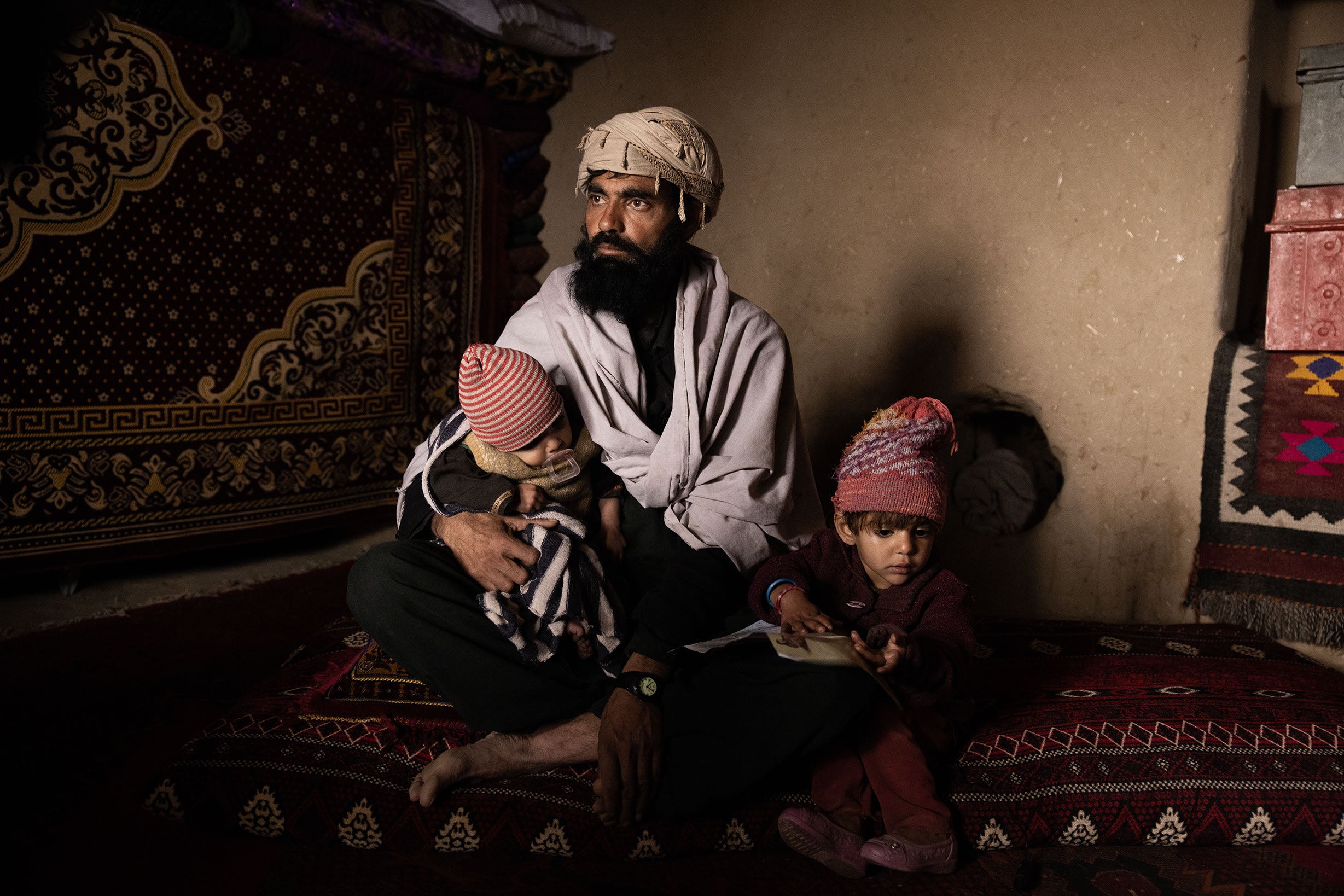

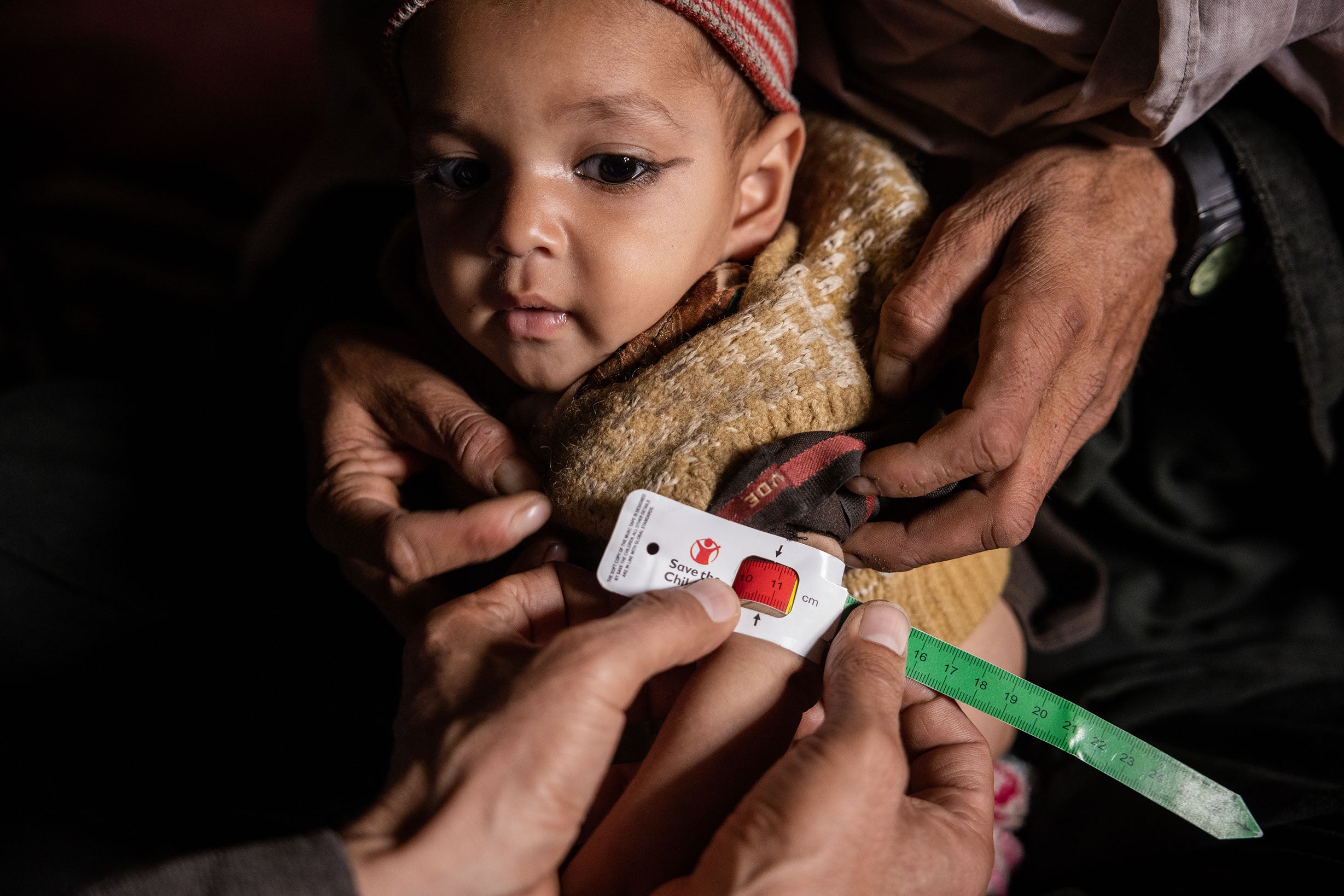
The withdrawal of aid and the freezing of financial assets has pushed Afghanistan’s public services to the brink of collapse. Hospitals across the country have been forced to close as wages for healthcare workers have dried up. Desperately sick children are being turned away as there are no medicines to treat them, and, where they are available, soaring prices mean they are unaffordable for many.
In Kabul, Arzoo*, 12, the oldest of seven children in her family, hasn’t been to school all winter because they are closed. Her father hasn’t been able to work for months, and most days they just eat bread because they can’t afford anything else. Arzoo’s parents and 18-month-old brother are ill, but the family can’t afford to go to the doctor. She said: “Now there is no job for my father to do and bring food home. One day we have food and the next day we don’t.”
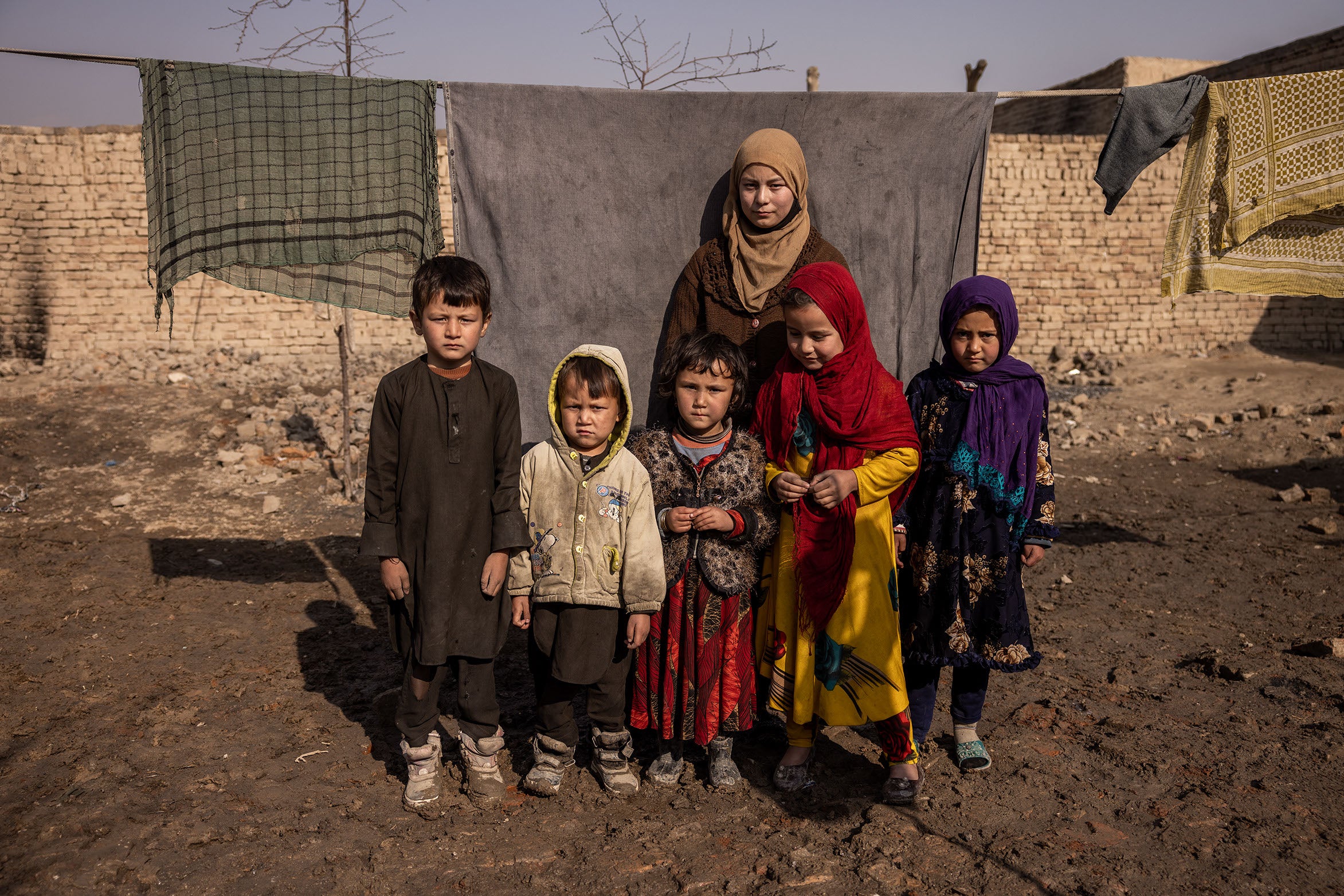
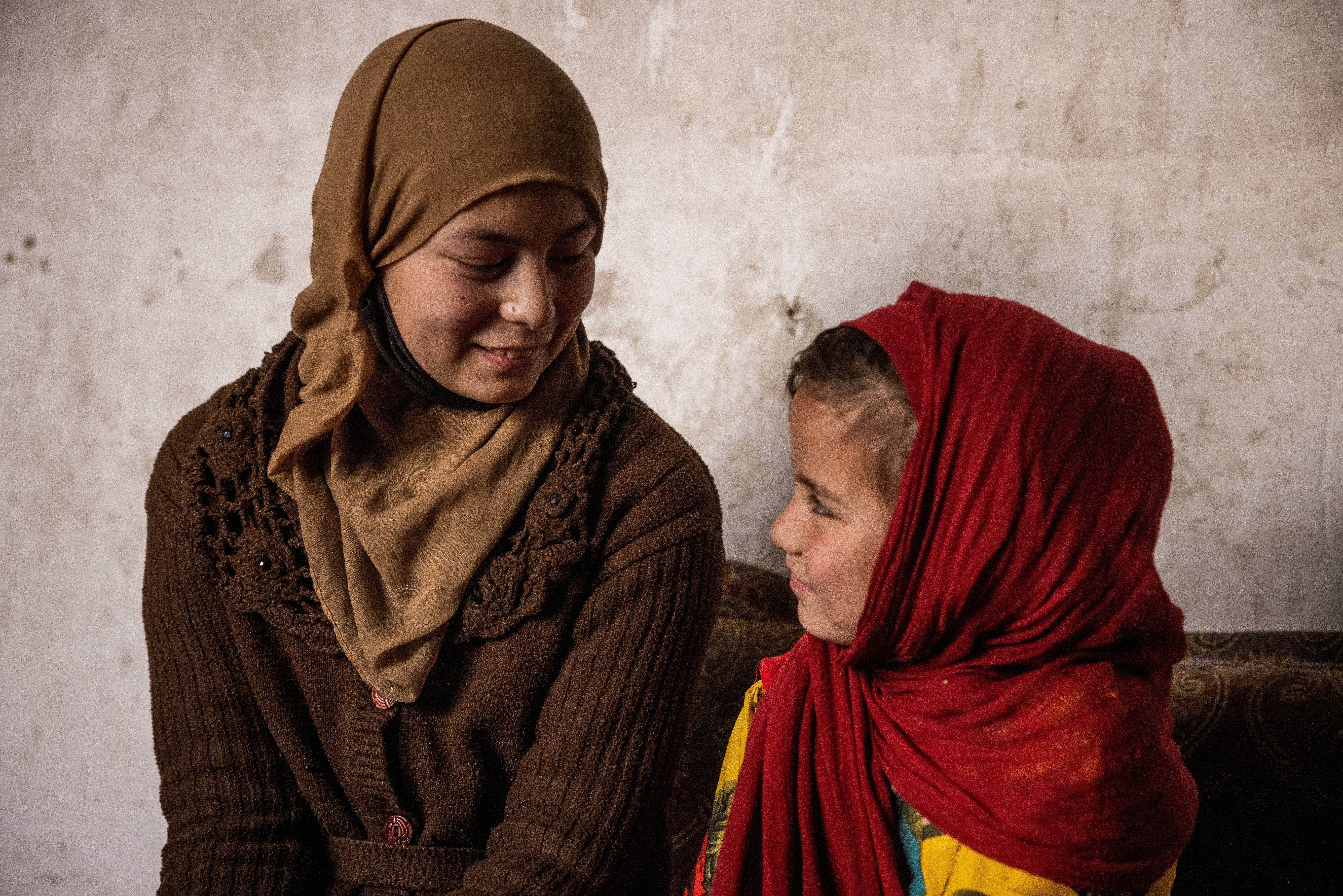
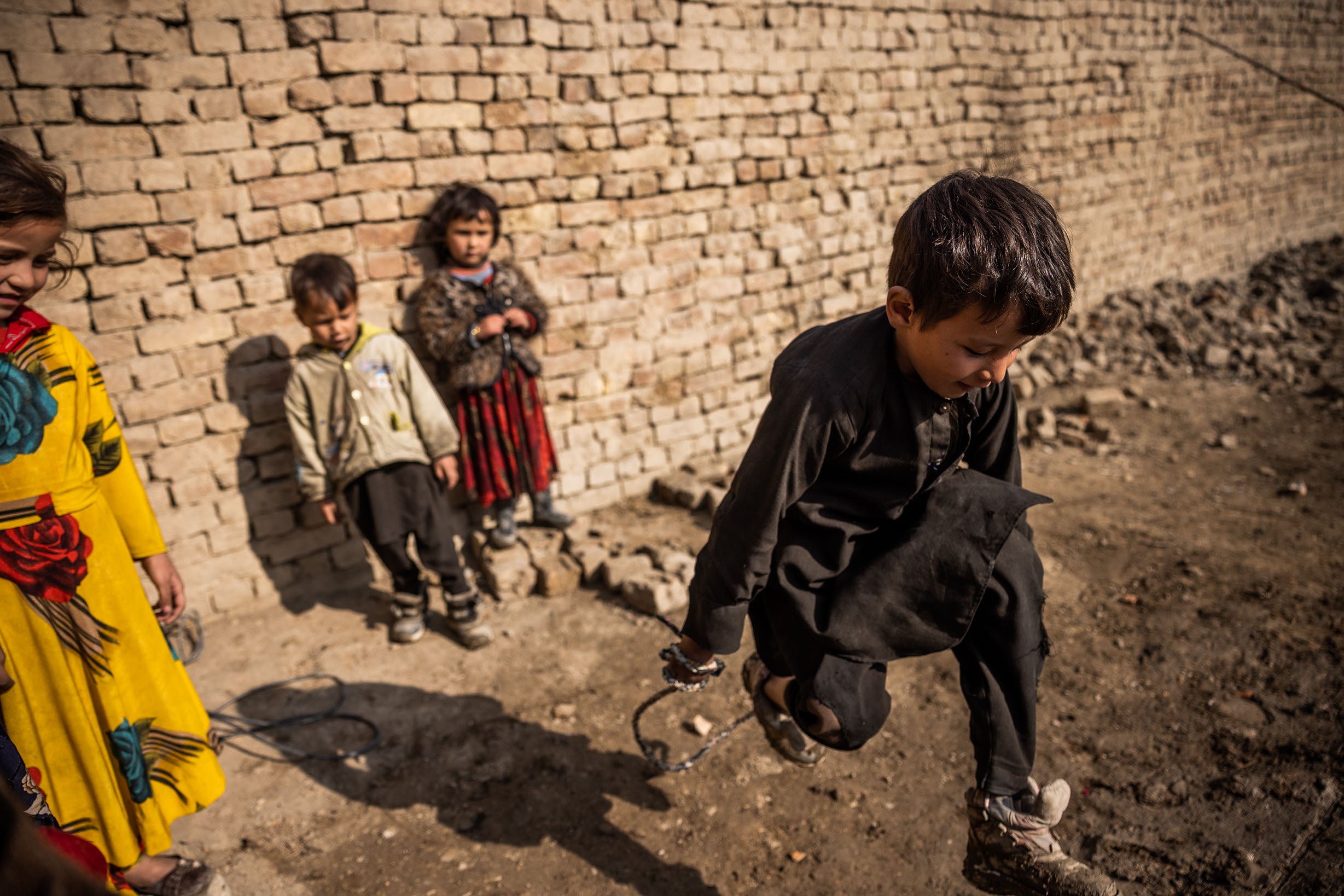
Arzoo’s mother, Ferisha*, 36, said: “There is absolutely no work. People are desperate for food; there is nothing.” When asked about the future for her children she said: “My hope is that they study and make progress; one can only have this hope.”
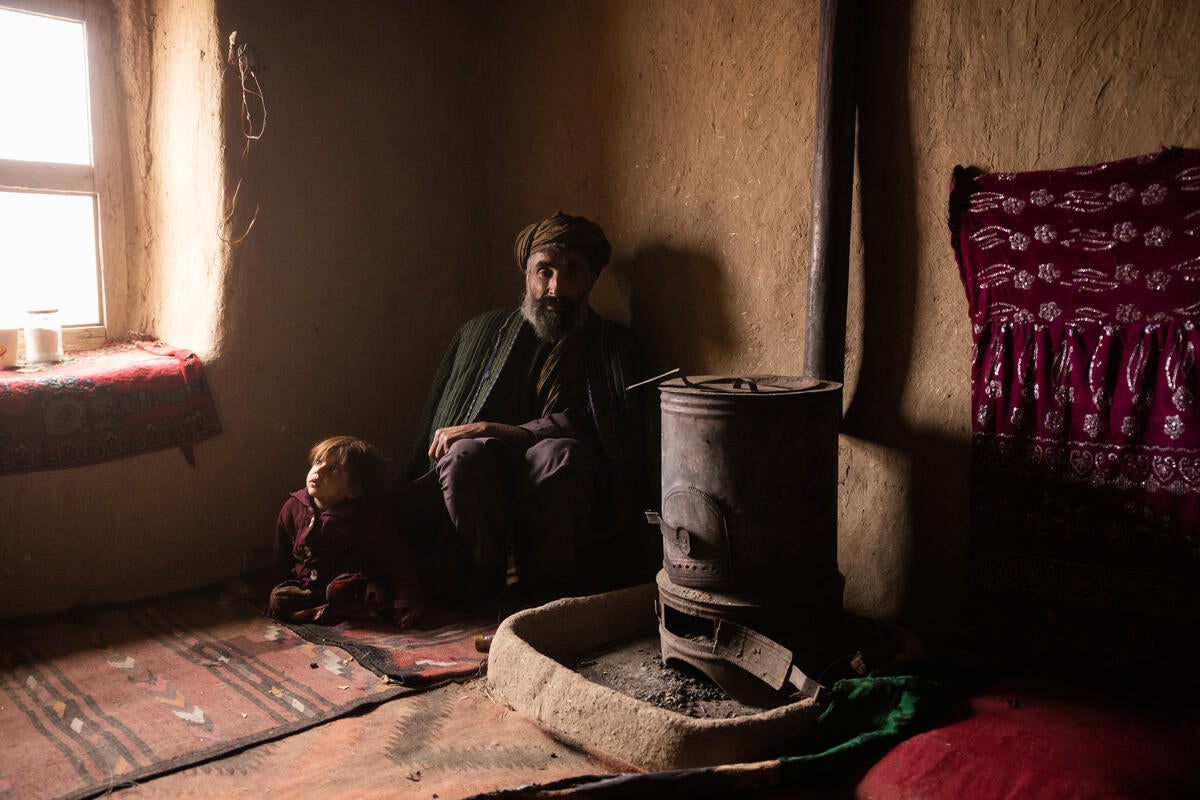
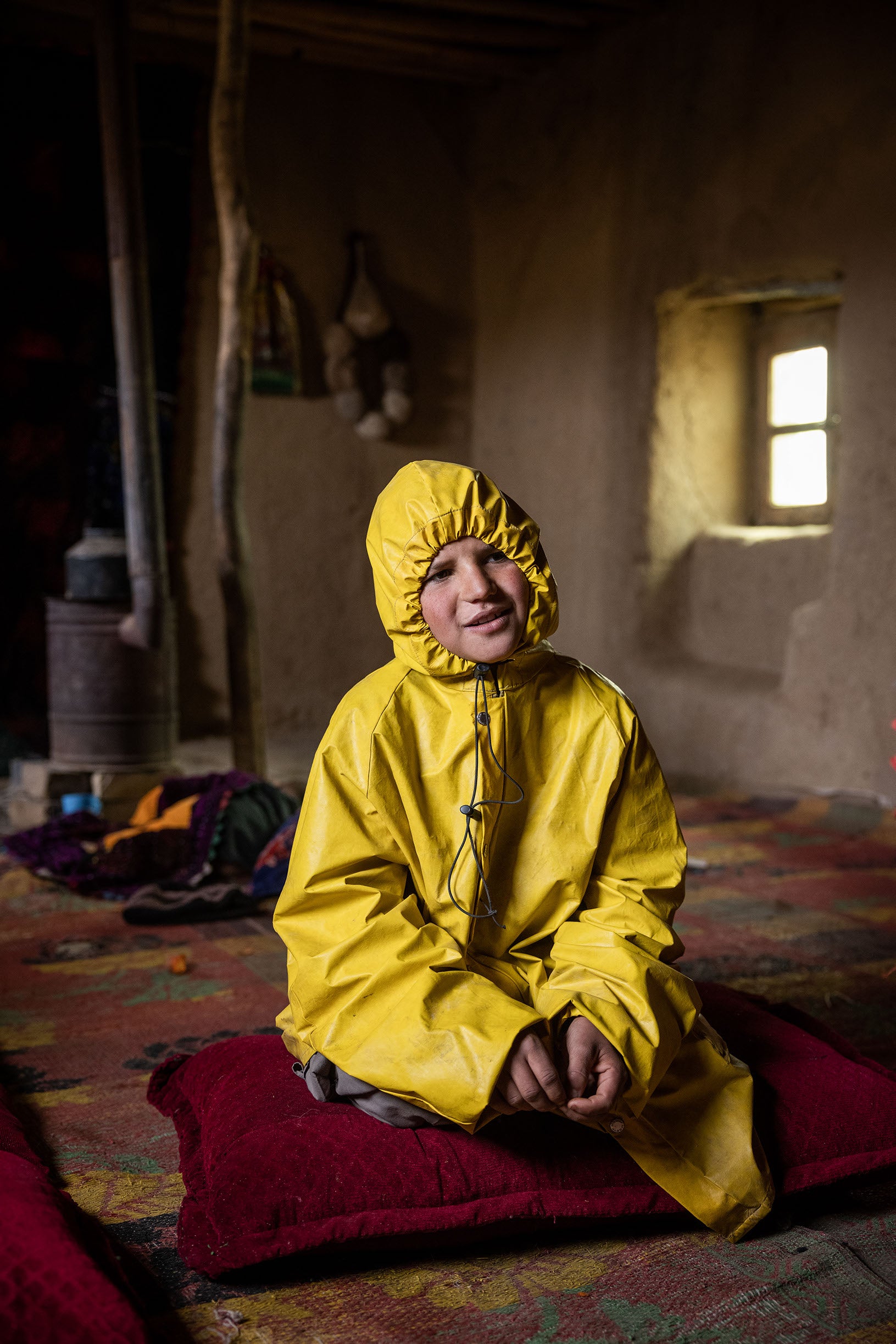
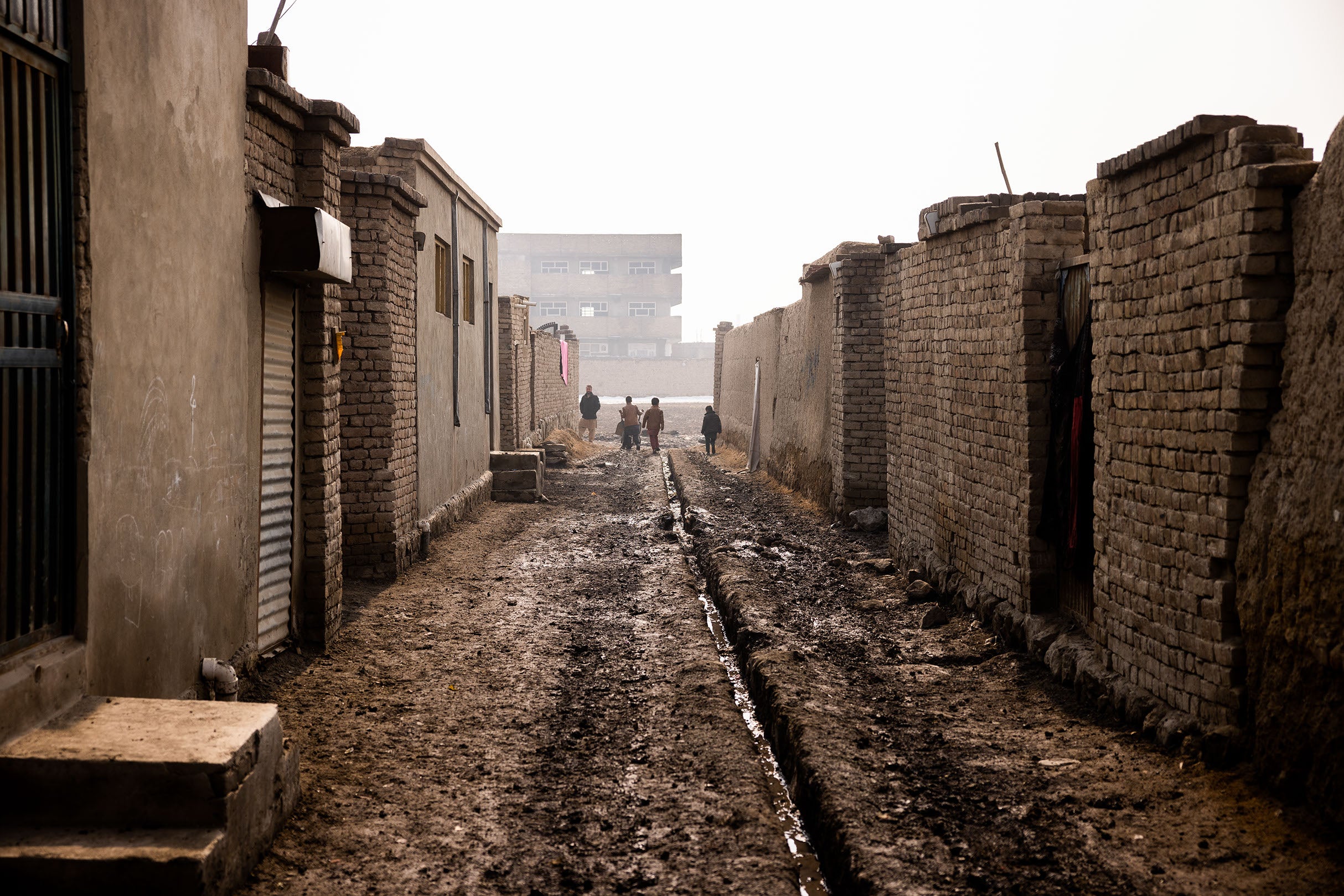
Save the Children is distributing cash, winter clothes and fuel to families in some of the hardest-hit areas to help them stay warm and fed through the bitter winter. Cash assistance helps to prevent families from resorting to desperate measures that adversely affect children such as child labour, early marriage and reduced meals.
You can find more information about Save the Children’s Afghanistan crisis appeal here
Join our commenting forum
Join thought-provoking conversations, follow other Independent readers and see their replies
Comments